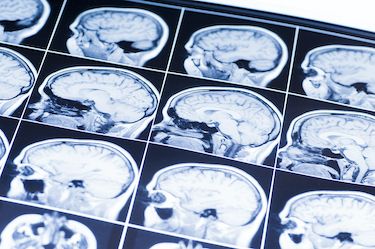Victims of Brain Injuries Have the Right to Compensation

When negligent actions lead to serious injuries, a thoroughly prepared and skillfully presented personal injury claim may be the only way for the victim to secure proper compensation for medical expenses, lost wages, and pain and suffering. In cases involving catastrophic accidents that result in traumatic brain injuries, high-quality representation is very important.
At Gerash Steiner Blanton, P.C., our attorneys offer vigorous trial services and representation for individuals and families in Denver and throughout Colorado.
Utilizing Medical Experience to Your Advantage
As an experienced physician and lawyer, Dr. Steiner plays an important role in preparing our entire team on legal and medical matters involving serious accident injuries and medical malpractice. This gives our experienced team of lawyers, paralegals, and expert witnesses an edge in providing a strong voice for victims of life-changing injuries. Not only do we understand your medical diagnosis, but we take a compassionate stance when representing your injury claim.
Contact our legal team to set up your free initial consultation!

Types of Brain Injury Claims We Handle
Our skilled traumatic brain injury attorneys have helped victims of injury throughout the area seek justice after being harmed through no fault of their own. If you or someone you love has suffered a serious brain injury or a traumatic brain injury (TBI) that has resulted in a life-threatening condition, you should speak with our legal team immediately.
Common brain injury claims we handle include:
- Traumatic Brain Injury (TBI) – refers to a type of injury caused by a blow or jolt to the head or a penetrating head injury that disrupts the normal function of the brain. TBI can range from mild to severe, and can result in a range of symptoms, including headaches, dizziness, confusion, memory problems, and loss of consciousness.
- Concussions – a type of mild TBI that typically occur after a blow or jolt to the head. They can result in a range of symptoms, including headaches, nausea, dizziness, confusion, and sensitivity to light and noise. In most cases, people recover from concussions within a few days or weeks, although some people may experience longer-lasting symptoms.
- Skull fractures – a type of injury that occurs when one or more of the bones in the skull are broken. Skull fractures can range from mild to severe, and can cause a range of symptoms, including headaches, dizziness, and loss of consciousness.
- Amnesia – a type of memory loss that can occur after a traumatic event. In some cases, amnesia may be temporary, while in other cases it may be permanent.
- Comas – a type of state of unconsciousness that can occur after a traumatic event, such as a severe head injury or stroke. People in comas are typically unresponsive and cannot be awakened.
- Spinal cord injuries – a type of injury that can occur after a blow or jolt to the spine, or as a result of a disease or degenerative condition. Spinal cord injuries can result in a range of symptoms, including paralysis, loss of sensation, and loss of bladder or bowel control. The severity of a spinal cord injury depends on the location and extent of the damage to the spinal cord.
Utilizing decades of combined experience, we consistently seek total settlements and verdicts on behalf of our injured clients. Taking into account your long-term medical costs, rehabilitation expenses, and all other damages or losses associated with your accident, we never settle for anything less than what you are actually entitled to receiving.
What Are Common Causes of Brain Injuries & How Can I Prevent Them?
Brain injuries can have a devastating impact on a person’s life, affecting their cognitive abilities, physical coordination, and emotional well-being. While brain injuries can be caused by a variety of factors, there are several common causes that are responsible for the majority of cases. We encourage you to read on to better understand what measures you can take to help prevent these injuries from happening.
- Motor vehicle accidents – Always wear a seatbelt when driving or riding in a car, and make sure that all passengers do the same. Follow traffic laws and avoid distracted or impaired driving.
- Motorcycle accidents – Wear a helmet and other protective gear when riding a motorcycle. Follow traffic laws and avoid reckless or impaired driving.
- Work-related accidents – Use safety equipment and follow safety protocols when working in hazardous environments. Report any safety concerns to management.
- Dangerous and defective products – Use products only as intended, and follow safety instructions. Report any safety concerns or defects to the manufacturer.
- Ski accidents and other sport-related accidents – Wear appropriate safety gear, such as helmets and padding. Follow safety instructions and avoid risky behavior.
- Medical malpractice – Choose reputable healthcare providers and ask questions about any medical procedures or treatments. Keep records of all medical appointments and treatments.
Our Denver-based law firm proudly represents victims who have recently suffered from a brain injury, are recovering from a concussion, or surviving family members who are demanding legal recourse on behalf of their beloved.
How Are Brain Injuries Diagnosed?
The diagnosis of a brain injury following an accident involves a combination of medical history, physical examination, and diagnostic testing.
Medical history: The doctor will take a detailed medical history from the patient or family members to understand the circumstances leading up to the injury, such as the type of accident, the force of impact, and the symptoms that the patient is experiencing.
Physical examination: A physical examination of the patient will be conducted to assess their neurological function, including tests for balance, coordination, reflexes, and muscle strength. The doctor may also check the patient’s cognitive function by asking them to perform tasks such as answering questions, following commands, and recalling information.
Diagnostic testing: A range of diagnostic tests may be ordered to assess the extent of the brain injury, including:
- Imaging tests such as CT (computed tomography) scan or MRI (magnetic resonance imaging) can help visualize the brain and identify any structural damage, such as bleeding or swelling.
- Neurological tests can evaluate brain function and help identify any deficits in cognitive or motor function.
- Neuropsychological testing can evaluate cognitive and emotional functioning, memory, and other aspects of brain function.
In some cases, a doctor may recommend monitoring the patient’s condition over time, especially if the symptoms are mild. However, if the injury is more severe, immediate medical attention may be required to prevent further damage and ensure the best possible outcome for the patient.
Work with Our Firm — No Fees Unless We Win
At Gerash Steiner Blanton, P.C., we handle traumatic brain injury cases and all other personal injury claims on a contingency fee basis. This means that you pay no legal fees unless we are successful in obtaining compensation for you. When we win, our fees are paid as an agreed upon percentage of the award. To see a sample list of our work on behalf of accident victims please review our representative cases.
If you need effective representation in a catastrophic brain injury case, contact our seasoned medical malpractice attorneys today. We offer free consultations and flexible hours.